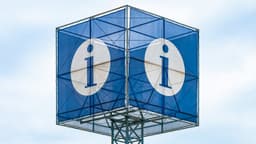Navigating Post-Interview Rejection with Grace and Positivity
Receiving a rejection letter after a job interview can be disheartening. You invested significant time and effort into the application and interview process, only to receive a "thanks, but no thanks" response. Don't let the disappointment overshadow your prospects. Responding to a rejection letter can maintain professionalism and potentially open doors in the future. Here’s how to craft a response that leaves a positive impression.
Should You Reply to a Job Rejection Letter?
Yes, you should reply to a rejection letter. Although it is not required or expected, it is considered a best practice. A response shows you are gracious in the face of disappointment. It offers a chance to thank the company for their time, maintain a professional relationship, and express ongoing interest in future opportunities.
A cordial reply can set you apart from other candidates. You might be surprised at how a simple gesture can leave a lasting impression on hiring managers, making them remember you when another position becomes available. This is an opportunity to nurture your professional network.
How to Respond to a Job Rejection Letter
When drafting your response to a rejection, consider the following points:
1. Keep it Brief and Professional
Avoid expressing frustration. Be concise and respectful. Acknowledge their decision and thank them for the interview opportunity.
2. Ask For Feedback
Showing interest in professional growth by asking for feedback demonstrates a commitment to self-improvement. Keep in mind that not all companies may provide feedback due to their policies.
3. Reiterate Your Interest
Express that, while disappointed, you still hold the company in high regard and are interested in future opportunities. This shows resilience and fosters a positive relationship.
4. Proofread Before Sending
Small errors can impact your professional image. Ensure your message is free of spelling or grammatical mistakes.
A Template for Your Response
Here’s a simple template to guide your response:
Html
Rejection is a standard aspect of the professional journey and may lead to better opportunities. Approach rejections with reflection and resilience. Continue improving your skills, expanding your network, and applying for positions that excite you. Responding to a rejection letter with grace and gratitude showcases professionalism and sets the stage for future success. Keep your spirits high—your ideal job may be just around the corner.












